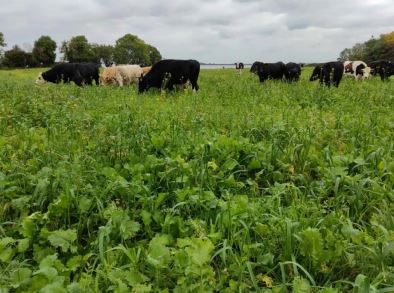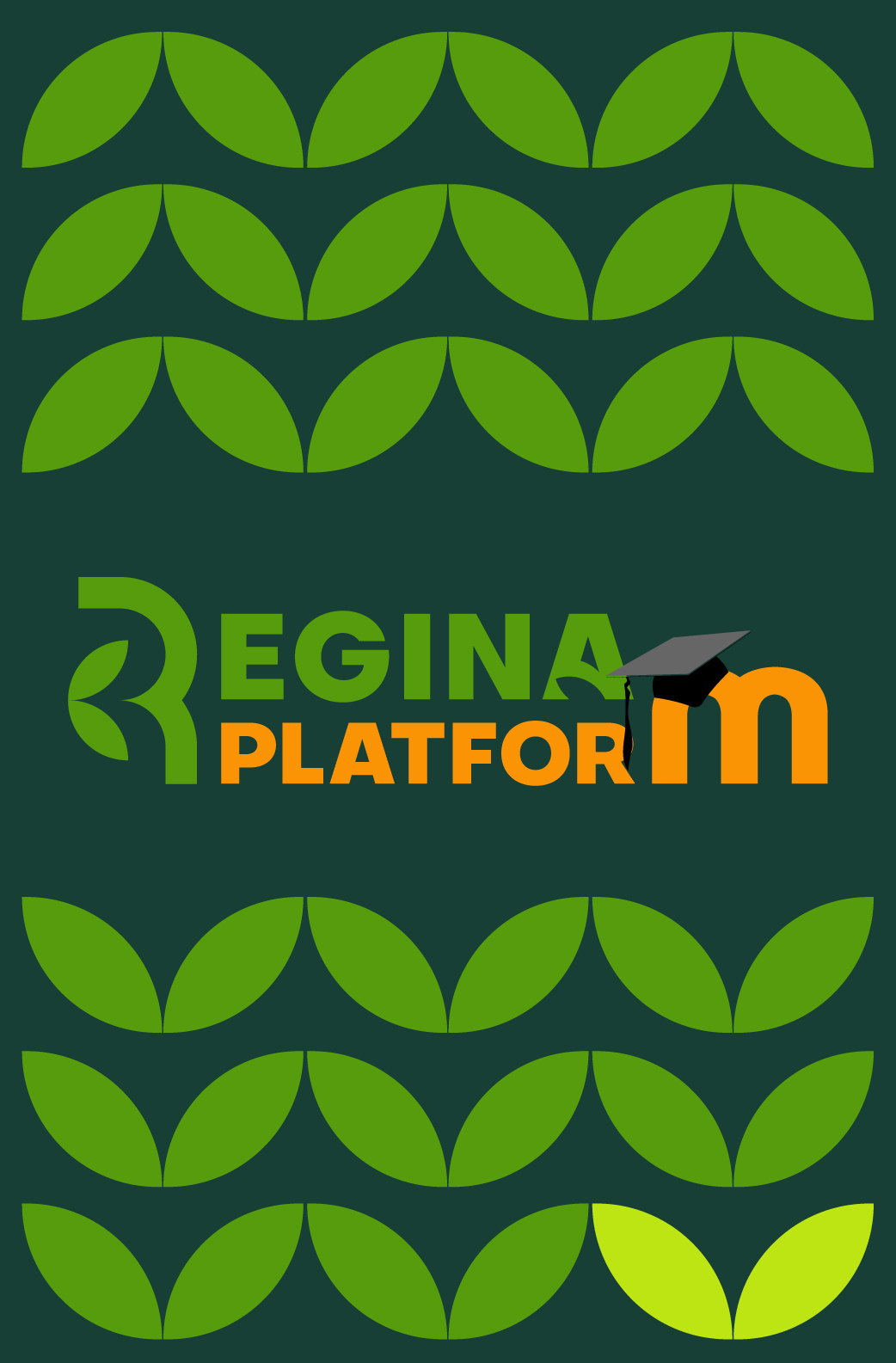Mervyn Auchmuty
Success Story
Farming as a Way of Life
Growing up on the family farm, farming for Mervyn Auchmuty has always been his way of life; “I never became a farmer, I was always one”. Now, Mervyn and his father Robert are farming together on their picturesque 400-acre arable (tillage) and mixed livestock farm in County Roscommon.
Minimum Tillage (Min Till)
Mervyn was first introduced to the idea of ‘Regenerative Agriculture’ in 2013, through learning the concept of “minimum tillage” or “min till” (minimum disruption of the soil). The Auchmuty’s land is stoney and therefore difficult to plough, taking many man hours to do so. Removing ploughing from their workload meant less hours ploughing, picking stones, burning diesel, and preparing cropland. The advantages of ‘min till’ were clear for their land. For many, the idea of not ploughing or tilling arable land seems ludicrous, but Mervyn managed to convince his father Robert that it could be a good idea.
Strip-Tilling
And so, the father-and-son duo removed the process of ploughing their soil, and they invested in a “Strip-Till Drill” through the aid of a TAMS (Targeted Agriculture Modernisation Schemes) grant. This Strip-Till allowed the pair to greatly reduce the amount of soil being tilled, only tilling the strips of land where crops were being sown. Mervyn explained the importance of minimum disturbance to the soil for keeping the soil microbes alive, which enhances the nutrient quality of the soil over time. Now the pair also use a “Direct Drill”, which does exactly what it says on the tin; directly drilling the crops into the soil without tilling at all.
Cover Crops
Another benefit to ‘Min Till’ is that most of the soil can remain covered with plants. Mervyn explained how the soil can degrade when there are no plants to cover it; due to factors such as the reduced ability for the soil to absorb carbon and the exposure of the soil to the elements (Sun, Wind, Rain). Therefore, cover crops play a crucial role in the period after crops have been harvested, to cover the bare soil with temporary plants to promote photosynthesis, carbon sequestration and good soil health. The use of cover crops is a practice which many tillage farmers do not observe, yet this changing, increased understanding of the benefits of cover crops through research, and the introduction of government incentives for cover crops are slowly increasing the use of this practice in Ireland.
Improved Root Structure
Mervyn has noticed how the root structure of his crops have improved since he began trialling Regenerative Agriculture practices back in 2013. Plant roots play a vital part in aerating the soil; allowing for better water absorption and providing vital nutrients to the soil.
Natural Fertilisers
The Auchmutys create natural compost with farmyard manure. This process for many farms is now a forgotten practice, as slurry is a more popular modern technique, even though it emits much higher amounts of greenhouse gases (methane, carbon dioxide) and toxic fumes (ammonia and hydrogen sulphide). The creation of natural compost calls for extra time and man hours from the farmers, but the natural benefits are clearly worth it for Mervyn and Robert.
Mervyn has experimented with seaweed and seed washes for naturally fertilising his cropland and seeds. Through his experimentation, he has found that treating seeds before planting leads to longer and stronger root systems and healthier soils.
Part of the Irish Regenerative Agriculture Community
In 2018, Mervyn joined the farmer-run regenerative agriculture group called “BASE Ireland”. Here, farmers share their experiences, ideas, and lessons of advice to other farmers trying out these alternative farming methods. The BASE (Biodiversity Agriculture Soil Environment) group allows farmers to educate each other, chat online, and host knowledge-sharing workshops.
As well as this, Mervyn has engaged in several NOTS (National Organic Training Skillnet) training courses and soil testing initiatives. He has learned a lot from videos on YouTube and through reading internet resources, and he does his part by sharing his knowledge and experience to other farmers through the BASE group.
Engaging in Regenerative Agriculture has kept Mervyn and his father Robert motivated on their farm. Each year, the duo trial new regenerative practices, which helps “keeps it interesting”. Mervyn hopes to continue to learn and trial at least one new regenerative agriculture practice each year.
LABELS: Ireland, Crop Production, Livestock, Green Fertilisation, Biodiversity, Biodynamic Agriculture, Crop Rotation, Min Till
|
GENERAL INFORMATION |
|
Location of farm |
Ireland, Lecarrow, Co. Roscommon |
|
Name of the farmer |
Mervyn Auchmuty |
|
Size of farm |
162 ha |
|
Permanent staff |
2 permanent staff (Mervyn and his father Robert), temporary help in the summer. |
|
Main products of farm |
Wheat, Barley Oats and Bean, Sheep & Beef |
|
CURRENT REGENERATIVE AGRICULTURE PRACTICES ON THE FARM |
|
Farmland cultivated with RA practices |
Cropland |
|
Crops produced with RA practices |
All Cropland |
|
Duration of using RA practices |
Since 2013 |
Read more information in pdf...
Blog can be read: https://www.secad.ie/case-studies/environment-case-studies/father-son-farming-duo-find-inspiration-through-regenerative-agriculture/

The REGINA project (No. 2021-1-HU01-KA220-HED-000027629) was funded by the European Commission. The content of this website does not necessarily reflect the views of the European Commission.
Call 2021, KA220 – Cooperation Partnerships in Higher Education
The European Commission’s support for the production of the publications does not constitute an endorsement of the contents, which reflect the views only of the authors, and the Commission cannot be held responsible for any use which may be made of the information contained therein.


